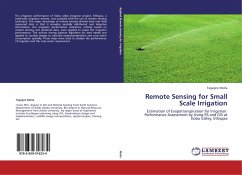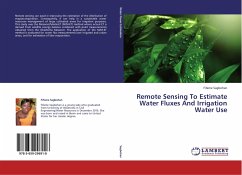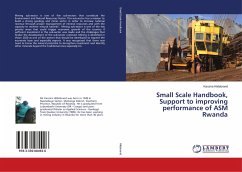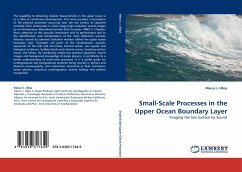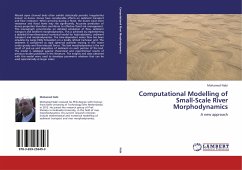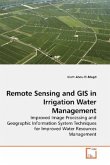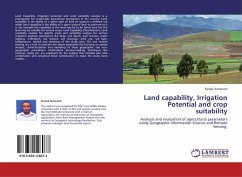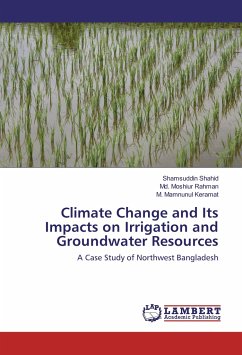The irrigation performance of Kobo valley irrigation project, Ethiopia, a small-scale irrigation scheme, was analysed with the use of remote sensing technique. The major advantage of remote sensing derived data over field measured data is that it provides spatially distributed and objective information. Five irrigation performance indicators, entirely based on remote sensing and statistical data, were applied to assess the irrigation performance. The surface energy balance algorithm for land model was applied to Landsat images to calculate evapotranspiration and crop water consumption spatially. These maps were used to analyse the performance of irrigation and the crop water requirement.
Bitte wählen Sie Ihr Anliegen aus.
Rechnungen
Retourenschein anfordern
Bestellstatus
Storno

